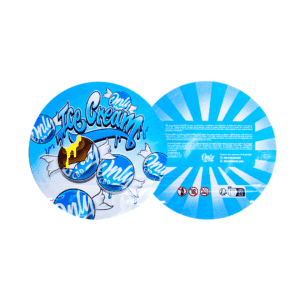Whether in oil, vaporized liquid, extract, or capsule form, CBD (Cannabidiol) is becoming one of the most marketed ingredients in the pharmaceutical and cosmetic markets. This substance non-psychoactive Cannabis is being sold as a miracle drug, however, many studies and evidence are needed to support these claims.
What is CBD?
Cannabidiol is just one of the 113 cannabinoids found in the cannabis plant. This chemical is extracted from the plant's flower as an oil, and its primary use is to treat epilepsy. Many people around the world are beginning to try CBD to reduce insomnia and even treat diabetes. However, it is a component that is still under investigation.
This substance is not addictive, since it is the cannabinoid called delta-9-tetrahydrocannabinol (THC) which causes the psychoactivity of cannabisIt is even believed that CBD can counteract this psychoactive quality if used in the right amounts.
Therapeutic uses of CBD
- CBD inhibits the proliferation of keratinocytes, which are cells found in the epidermis. CBD oil, made from olive oil, is used topically to treat skin conditions such as psoriasis, reducing itching and inflammation.
- CBD is a neuroprotector and regenerator that stimulates and activates nervous system responses, improving motor skills. This quality allows it to be used to counteract the effects of multiple sclerosis, Alzheimer's, and Parkinson's.
- It is also used to reduce the convulsive effects of many diseases, however, it is never prescribed as the sole treatment, but rather as a complement to common anticonvulsants.
- CBD's anti-inflammatory and analgesic properties make it suitable for treating conditions such as Crohn's disease, while also reducing the nausea caused by medication.
- CBD is considered an anxiolytic, so it is also used to treat anxiety, insomnia, psychosis, autism, and alcoholism.
- In addition to all the uses already mentioned, CBD is used for cardiovascular dysfunction, neuropsychiatric disorders, metabolic syndromes, and scientific research is even being conducted to verify its anticancer properties.
Side effects of CBD
CBD use has been shown to cause anticoagulant effects, making it undesirable for patients with bleeding disorders. Additionally, patients may experience signs of tiredness or fatigue, drowsiness, and dry mouth, as well as headaches, decreased appetite, and dizziness. These effects diminish when the dose of this cannabinoid is reduced and disappear when CBD use is discontinued.
It's important to consult with a primary care physician if you want to begin using CBD for therapeutic purposes. There are very few studies that verify the veracity of all the properties attributed to CBD. Furthermore, this substance isn't legal in all countries around the world, so the regulations and safety protocols used for its production aren't entirely reliable.

























